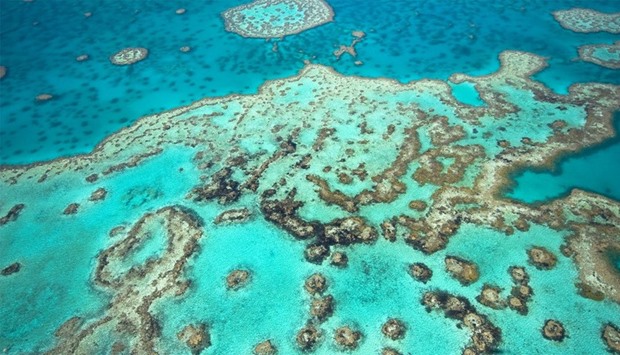Australia's Great Barrier Reef will receive A$500 million ($379.10 million) in new funding to restore water quality and protect the coral from starfish attacks, government ministers announced on Sunday.
Energy Minister Josh Frydenberg said in a televised interview that some of the money would go directly to farmers to modify their practices ‘to ensure that the reef doesn't get the large amounts of sediment, nitrogen and pesticide run-off which is so damaging to coral and which helps breed this crown-of-thorns starfish.’
The Great Barrier Reef, which can be seen from space, covers 348,000 square kilometres and was world-heritage listed in 1981 as the most spectacular coral reef on the planet, according to the website of the United Nations cultural body UNESCO.
UNESCO considered putting it on the ‘in danger’ list last year due to recent widespread destruction but voted against it, allowing Australia's conservative government to dodge political embarrassment and potential damage to the country's tourism industry.
A major outbreak of coral-eating crown-of-thorns starfish has been destroying areas of the world heritage-listed reef, prompting a major cull in January.
The predator starfish feeds on corals by spreading its stomach over them and using digestive enzymes to liquefy tissue.
Agricultural run-off from sugar cane farms and cattle stations has also harmed the section of reef that is closest to shore, according to Bradley Opdike, a marine scientist at the Australian National University.
‘What happens with the sediment is it just smothers it, while higher nutrients cause algae to out-compete the corals,’ he told Reuters by telephone on Sunday.
While the funding announcement was welcomed by scientists, some were sceptical on whether it would actually help.
Jon Brodie, a professor at James Cook University's Coral Reef Studies Centre of Excellence said the funding was an extension of existing failed programs.
‘It's not working, it's not achieving major water quality improvements,’ he told Reuters by telephone on Sunday. However, Foreign Minister Julie Bishop said that Australia was a world leader in managing and protecting its reef, as the government's Reef 2050 plan had been approved by the UNESCO World Heritage Committee as being the standard for the rest of the world to follow.
‘They look to Australia to provide the technical expertise the scientific research, and to give the best practice management of coral reefs and that's what we demonstrate,’ she told reporters on Sunday from Cairns on Australia's east coast.

